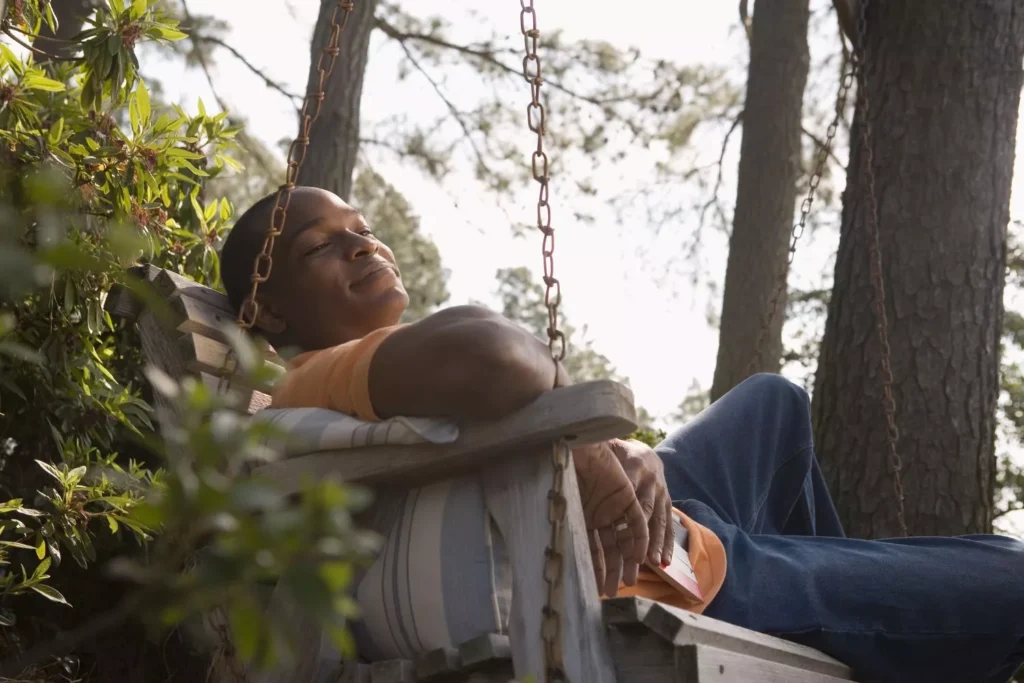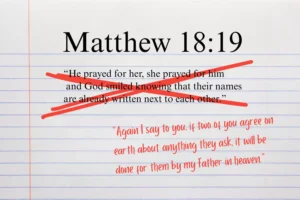At 23, I was fresh out of college with the world at my fingertips. I’d just finished student teaching, wrapped up three jobs, and was ready to thrive.
Or so I thought.
A few days later I sat in the ER — overwhelmed, scared and confused.
Over the next three months I was diagnosed with more than 10 physical and mental health conditions. I took a lower-paying local teaching job in hopes of stabilizing my health, but then tried to keep up the same pace I’d had before. The pressure to do more, be more, and perform perfectly didn’t stop — and it ate me alive. No matter what I tried, I couldn’t slow down. My anxiety skyrocketed. I couldn’t breathe. Deep down I knew I needed rest — but I didn’t know how to get it.
It wasn’t until several years later that I learned I wasn’t alone. Adulting is stressful for anyone, but according to a recent survey by Deloitte, 52 percent of Gen Z feel burned out and exhausted. Generational strategist Ryan Jenkins reports that 75 percent of young adults are more worried about starting a career than finding a soulmate. Even in Christian spaces, we’re conditioned to think rest is something we earn. We say we’re fine. But are we really?
Rest is God’s command
For most of us, rest is the 11th plague. Who has time to rest? But God is clear: Rest isn’t a mere suggestion; it’s a command given for our own good.
Rest isn’t quitting, but trusting. Psalm 46:10 says, “Be still, and know that I am God; I will be exalted among the nations, I will be exalted in the earth” (NIV). The Hebrew word for “be still,” rāpâ, means to cease [from striving], let go, refrain, be quiet, or show oneself slack. It appears over 46 times in the KJV and is used in Deuteronomy 31:6 and 8, and Joshua 1:5 to remind us not to fear because God is with us.
The Sabbath, a day God set apart for us, isn’t a burden. Though pausing work may feel that way, the Hebrew word sabāt implies a day of rest for the heart. Obeying the Sabbath is choosing in advance to pause, submit and entrust that day to the Lord. When God rested on the seventh day, it wasn’t because He was tired — God never wearies (Genesis 20:11; Psalm 121:3-5; Isaiah 40:28). We do, though, so rest is God’s gift to us. Since He knows perfectly what we need, rest is not optional, but essential.
From the beginning, God called this day of rest holy because He knew we’d struggle to see it that way. Just as work is a gift, rest is, too. When this perspective is out of balance, we all suffer. Choosing to rest isn’t just counter-cultural; it’s critically restorative for our society’s burned-out condition.
What it means to rest
God wants us to work well and rest well. But when we praise one and ignore the other, we’re not living in the freedom of Christ; we’re living in slavery (1 Corinthians 6:12, 2 Peter 2:19).
Abraham Lincoln said this best in his 1862 Annual Message to Congress: “As we keep or break the Sabbath day, we nobly save or meanly lose the last best hope by which man rises.”
A couple of weeks off won’t solve burnout, but small, intentional shifts towards wholeness with the Lord, over time, can. Jess Connolly in “Tired of Being Tired” describes exhaustion as spiritual, physical, mental and emotional. The opposite of exhaustion is unshakeable, ingrained rest — a rest only the Lord can give.
Psalm 127:2 reminds us,
“It is useless for you to work so hard from early morning until late at night, anxiously working for food to eat; for God gives rest to his loved ones.” (NLT)
How many of us live this way — toiling, fretting, seemingly never stopping? I know I’m raising my hand.
Friends, God calls us to work, but also to pause, breathe and trust. Rest isn’t laziness, but rather a lifestyle of surrender.
Practical ways to pursue God’s rest
Learning to rest doesn’t happen instantly, but small, intentional steps over time can help us reconnect with God, ourselves and others. Here are a few ideas to try in the areas of mental, spiritual, emotional and physical rest.
Mental Rest:
- Take a walk without your phone
- Meditate on God’s creation
- Limit multitasking, focusing on one task at a time
- Sit in silence for 5-10 minutes every morning or evening
Spiritual Rest:
- Try a new form of worship: memorize Scripture, listen to music, or pray creatively
- Change up your quiet time routine to avoid spiritual ruts
- Journal your thoughts and prayers
- Listen to a sermon
- Dive deeper into Scripture with a commentary or a word study
- Talk to God wherever you are, no matter what you’re doing
Emotional Rest:
- Use a feelings wheel to identify emotions
- Have open, vulnerable conversations with God about these feelings
- Journal reflections as prayers (Psalm 62:8)
Physical Rest:
- Practice the 4-4-8 breath prayer. Inhale through your nose for four seconds while mentally reciting the first part of a Scripture (“When anxiety was great within me…” (Psalm 94:19, NIV). Then, hold that breath for four seconds. On the next eight seconds, exhale through your mouth while mentally reciting the second part of that Scripture (“…your consolation brought me joy”).
- Sleep, stretch or dance! Anything that reconnects your body to your breath taps into the parasympathetic (“rest and digest”) system.
While these practices are helpful, they come from a restored view of rest. The only way to understand and achieve that view is by trusting God when we work and when we don’t. Remember: We’re called to work hard, but that means we do what we can and let God handle the rest.
Choosing a lifestyle of rest
Resting isn’t easy. It takes practice, discipline and courage to exchange hurriedness for a slower, more intentional life. But it’s a challenge worth every ounce of effort to restore the life God intended for us.
A few months ago, I decided to take God’s command in Genesis seriously. I marked off one day a week to Sabbath and learned what it means to rest in the Lord. I’m still learning, and my practice is far from perfect, but I’m beginning to see it transform my life.
Rest was the 11th plague until it reset my life, and I believe it can reset yours. The choice is ours: continue burning out, or embrace the wholeness God offers. Will you receive it?
Copyright 2025 Amber Ginter. All rights reserved.











